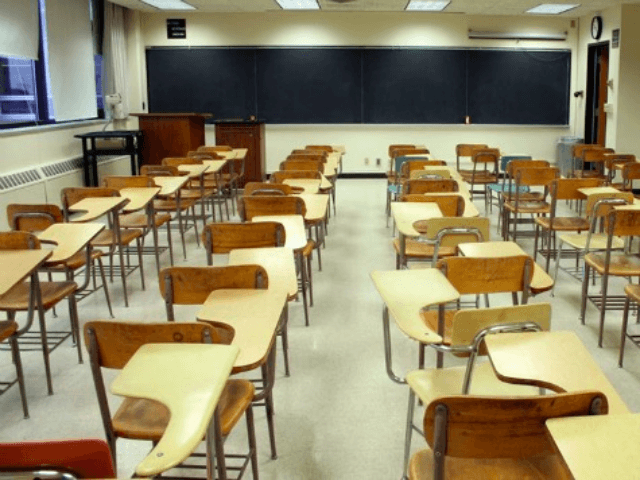Dr. Dimitri Christakis knows a thing or two about children as the director of the Center for Child Health, Behavior and Development at Seattle Children’s Research Institute, including the consequences of keeping children out of a school setting for an extended period of time because of the threat of coronavirus.
His latest addition to the more than 170 original research articles published in the Journal of the American Medical Association Pediatrics has a stern warning about decisions made in the wake of the virus: ‘They will hold us accountable,” Christakis wrote.
The article, published this week in the Journal, said that it will be long after the pandemic that “historians, epidemiologists, psychologists, and economists will provide extensive explanations of the damage done, mistakes made, and lessons learned.”
In the meantime, decisions must be made because they can have “considerable and lasting implications.”
Christakis titled his article, “School Reopening—The Pandemic Issue That Is Not Getting Its Due:”
The decision to close schools was among the first action that many states took to stave the impending pandemic and was based on a strong theoretical foundation. Children are typically at greatest risk of infectious diseases, and they transmit them to each other and their families with considerable speed. Many drew parallels to the 100-year-old influenza epidemic, in which it was true that children played a central role in transmission. But in the 6 to 8 weeks since most schools in the U.S. have closed, we have gathered new evidence about both children’s risks from the virus and their likelihood of transmitting it, as noted by Esposito and Principi in this issue of JAMA Pediatrics. We know only what we know today about the benefits and harms associated with school closure.
However imperfect these data are, they must inform a critical decision that many states and school districts will be making in the very near future. Notably, even as states provisionally plan on opening workplaces, most are giving no consideration to opening schools. Many have already canceled the rest of the year, and all are now considering what to do in the fall. The risks posed by delaying school openings are real and sizeable, particularly for students from low-income families.
The phenomenon of summer learning loss has been well established, with children losing a mean of 1 to 3 months in varying subjects. Some estimate that there will be a 9-month to 12-month loss when children return to school in the fall, and this will only be compounded if distance learning continues. No credible scientist, learning expert, teacher, or parent believes that children aged 5 to 10 years can meaningfully engage in online learning without considerable parental involvement, which many families with low incomes are unable to provide because parents must work outside the home.
Christakis said that in addition to a coronavirus task force, the government should be “convene immediately” a school closure task force and include “epidemiologists, infectious disease experts, educational scientists, and child psychologists, among others.”
“They should review the state of the evidence regarding horizontal transmission among children and their families, as well as what is known about the feasibility of distance learning and the psychological implications of children continuing to stay at home,” Christakis wrote.
He added that the decisions should be “developmentally framed” because “kindergarten is not the same as high school or college.”
“Using all existing and emerging data—however incomplete—they should make their best-informed recommendations to help states make this crucial decision, based on science and not politics, as soon as possible,” Christakis wrote. “We owe this to our children. Years from now, when they reflect on the pandemic, they will hold us accountable.”
Follow Penny Starr on Twitter

COMMENTS
Please let us know if you're having issues with commenting.